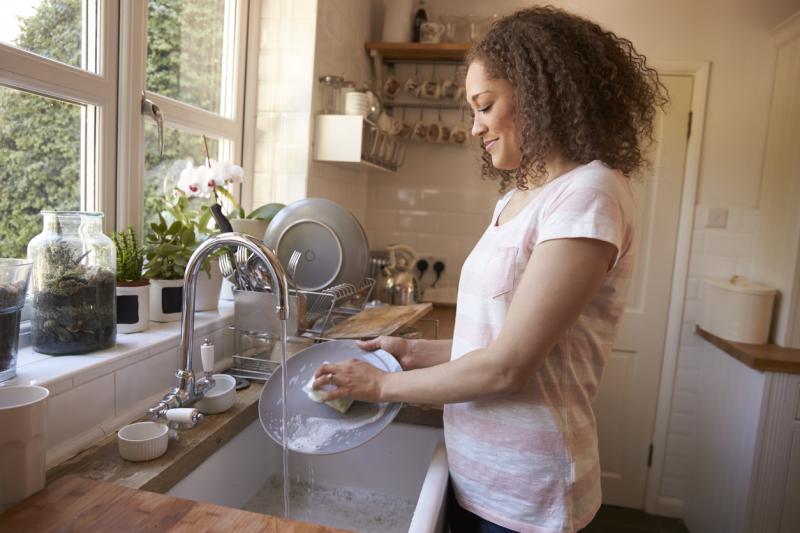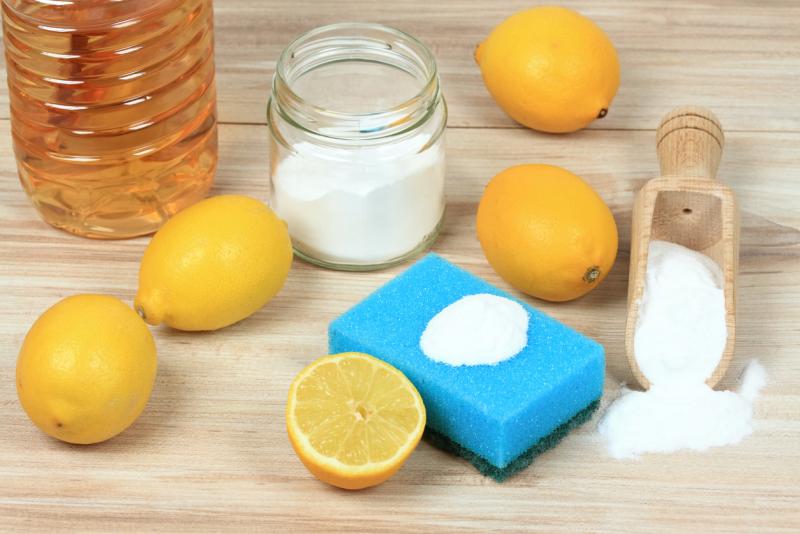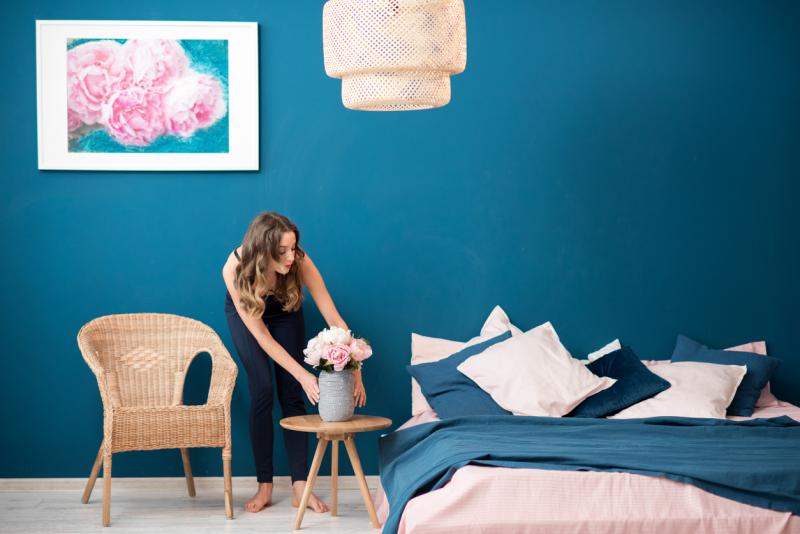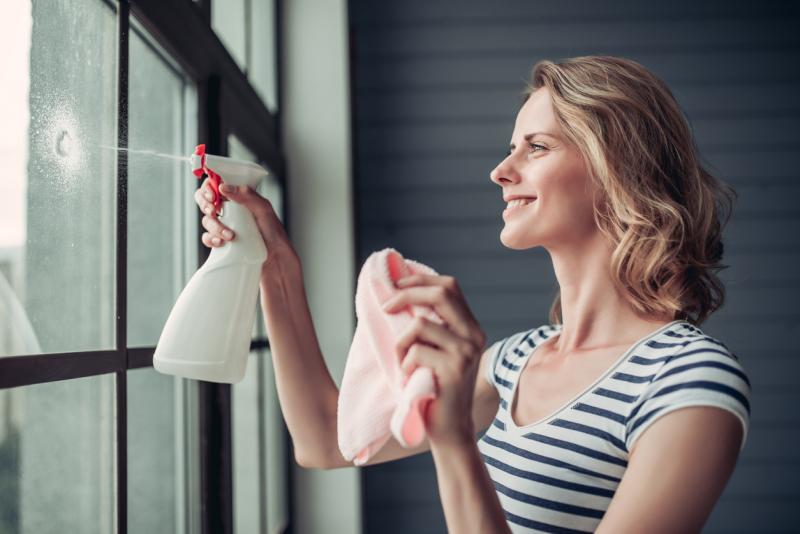By Lizzie Grant, founder of Simplify Stuff
1. Envision
To make the most of spring cleaning, take a moment to imagine your home clean and free of clutter. What would that look, feel, even smell like to you – peaceful, calm, fresh? Ask yourself why you are doing this. Visualising this clearly will give you the motivation to spring clean as you will then know exactly what you are aiming to achieve. Take photos of your home before you start and after you have finished so you remember exactly how much you have accomplished!
2. Declutter before you clean
Decluttering is crucial in spring cleaning as it makes the actual cleaning so much easier and quicker.
There is nothing worse than spending time cleaning, when you know that behind closed doors everything remains disorganised and chaotic. Clutter causes stress, particularly for women, and makes it difficult to focus, make decisions and to relax. It’s therefore important to get rid of the clutter to make the maximum positive impact with your spring cleaning. Consider what you own and ask yourself whether you love and / or use each item? Is that item really worth keeping and cleaning?
3. Dedicate time
Set aside an ample period of time to dedicate to spring cleaning. Use it as time for yourself by turning off your phone and other distractions. Just focus on the decluttering and cleaning – nothing else – during the time you’ve allotted to do this. Researchers have found that we are happiest when our thoughts and actions are aligned. For example, if you iron a shirt and just think about making it smooth, the feel of the fabric and the way the iron is moving over the shirt, you will be much happier than if you are ironing whilst thinking about going on holiday somewhere hot! It is about appreciating the present moment – not wishing ourselves elsewhere or being distracted by other things.
4. Surfaces
Clutter tends to gather on surfaces, which in turn, makes them harder to clean. Focus on decluttering all your surfaces. In the kitchen, be honest with yourself as to whether you need those larger appliances that clog up surface space and are hard to clean such as blenders, mixers and spiralizers. If you want to keep them but they are used rarely, make space in your cupboards to put them away. In the bathroom, challenge yourself to minimise your beauty regime. Toiletries tend to take up a lot of space on surfaces but how many of them do you actually need to use? Having decorative ornaments and trinkets is nice but adds time to dusting so consider whether you enjoy having these on display or whether you could simplify your cleaning routine by letting go of ones that no longer bring you joy.
5. Books
While you are cleaning your shelves, take this opportunity to declutter your books. The best way is to look at one book at a time. Sometimes when we just look up at our entire collection, it can very difficult to envisage letting any go but in reality there will be volumes hiding amongst our favourites which we do not want or need. With books you enjoyed, consider whether you would like to pass on the gift of a good book to a friend or family member – that can be one of the best gifts you can give! With books that you have not yet read, give yourself a “still to read” shelf so that when you’re looking for something new to read, you work your way through these. You will begin to realise after 6 months or so that if there are books that you keep avoiding on that shelf, you may just want to let them go!
6. Furniture
Just because they’re big, does not mean that they are not surplus to requirements. Consider what purpose each piece of furniture is serving and whether you use and love it. If the piece is useful but you do not love the way it looks or it has seen better days, consider repainting or reupholstering to give it a new look which you love.
7. Recycle or donate
Spring cleaning provides you with a great chance to sort through your belongings and let go of items you no longer need but that can still be done in a mindful way. Decide what can be donated and recycled to prevent adding to landfill. Textiles and soft furnishings that are worn but not good enough for a charity shop can be recycled at textile banks.New, opened or part-used beauty products can be donated to The Hygiene Bank, which gives them to those living in poverty via charity and Government partners, with local collection points all around the UK. Donate good quality items to local charity shops or order free collections from charities such as the British Heart Foundation and TRAID. Try to get rid of unwanted items quickly rather than letting them linger. There are many different options so there’s no need to let your unwanted stuff continue to clutter up your space.
8. Find everything a home
Once you have decluttered, everything you are keeping needs a home. If an item doesn’t have a specific space to live in when it’s not being used, it becomes clutter. The homes for items should not be crammed full of things and you should be able to easily pull them out from their space. Place them near to where you use them. This makes it so much easier to clean and tidy up as you will know exactly where each item should go. It also means when you need to find something, you’ll know exactly where to look for it.
9. Cleaning products
The way we clean has a significant impact on our environment. The simplest ingredients are the best: vinegar, lemon, baking powder and essential oils can make incredibly effective cleaning products. They have a much lower impact on our environment than conventional cleaning products which tend to be full of chemicals and in plastic packaging. Being mindful about the way you spring clean will make a difference for you and others.
10. Mindfully clean
Many people think of cleaning and tidying the home as a stressful or arduous chore. However, the process of cleaning can help you clear your mind when you practice mindfulness while you vacuum, fold laundry, mop floors, or do any type of cleaning. Pay attention to your thoughts, body and actions whilst cleaning. Practice focusing your attention: on the mop, on the broom, on the dust. But also notice the thoughts that slide into your mind: are you thinking about other things? Are these things that you are feeling emotional about? Are they problems that you want to solve? Don’t banish the thoughts, but notice them. Then return to the cleaning. Notice as you clean your breathing as well. Try to immerse yourself in the moment. Focus on the actions you are doing. The repetitiveness of common household chores can offer relaxation and a way for you to let go of any thoughts that have been bothering you.











